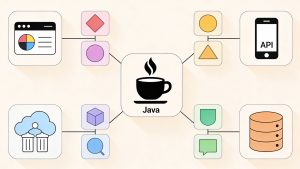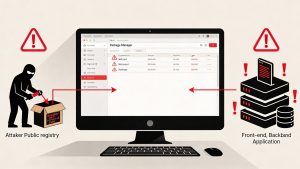Kubernetes, as an open-source platform, has transformed how organizations deploy, scale, and manage containerized applications including complex AI and machine learning operations. Its robust orchestration, resource optimization, and portability make it the logical foundation for building, training, and deploying next-generation ML models.
Key Reasons Kubernetes Is Ideal for AI and ML
Kubernetes has become the industry standard for orchestrating enterprise-scale containers, primarily due to its capability to simplify and manage highly complex AI and MLOps workloads.
Scalability and Flexibility
Kubernetes enables horizontal scaling of AI workloads across numerous compute nodes, effortlessly supporting both hybrid and multi-cloud deployments. This allows AI practitioners to allocate compute resources dynamically—easily ramping up for large training jobs or scaling down for less intensive tasks. Parallelized batch processing and pipeline execution also mean faster model training and data handling.
Advanced Resource Management
Effective management of CPUs, GPUs, and memory is vital for ML environments. Kubernetes provides sophisticated controls for assigning and optimizing resource use per workload—ensuring maximum utilization, improved performance, and reduced operational costs. Dynamic allocation further allows real-time adaptation to evolving model requirements, keeping workflows efficient and cost effective.
Containerization for Portability
Containers package applications together with their dependencies, ensuring consistent execution across diverse environments. In AI workflows, this not only guarantees reproducibility but also enables teams to segregate development and operations responsibilities—streamlining code updates, module integrations, and resource allocation throughout the application lifecycle.
Portability and Fault Tolerance
Modern AI systems require high resilience. Kubernetes features built-in self-healing and fault tolerance, automatically rescheduling workloads if failures occur—maintaining ongoing ML pipeline continuity even amid hardware or software disruptions.
Security and Data Management
Through strong role-based access controls (RBAC), secrets management, network policies, and support for multi-tenancy, Kubernetes secures data and models throughout the ML pipeline. Its architecture supports federated learning scenarios and encapsulates persistent storage, ensuring data privacy and smooth integration with on-premises or cloud-based storage systems.
Essential Tools for Running AI and MLOps on Kubernetes
Kubernetes, by itself, is not a complete MLOps solution. Teams rely on specialized tools that integrate natively with Kubernetes to orchestrate the full ML lifecycle:
- MLflow
- TensorFlow
- Kubeflow
- KubeRay
Examples of MLOps Workflows with Kubernetes
Common patterns in AI/ML workloads within Kubernetes environments include:
- Scaling resources dynamically based on model or data load
- Seamless deployment, updates, and rollbacks for ML models
- Optimizing performance metrics for training and inference
- Automating complete CI/CD pipelines using Kubeflow
- Parallelized training of deep learning models such as PyTorch and TensorFlow
- Offline processing of large datasets
- Distributed tasks across multiple pods for accelerated computation
Overcoming Kubernetes Challenges in AI Contexts
Adopting Kubernetes introduces layers of complexity—especially in AI settings. Success demands understanding key concepts like containerization, cluster architecture, and cloud-native operations. Efficient Kubernetes management also requires ongoing monitoring, regular upgrades, scale planning, and sometimes a dedicated operations team. Ensuring reliable GPU scheduling, high availability, and robust network security within clusters is essential for production readiness.
Conclusion: Kubernetes is the Backbone of Modern AI and MLOps
Kubernetes is now the premier platform for deploying AI and MLOps workloads, offering scalability, efficiency, and operational reliability. Its abstraction of infrastructure complexity empowers organizations to leverage advanced hardware, accelerate model delivery, and embed DevOps best practices within machine learning. Whether executing edge AI, building global recommendation engines, or orchestrating generative AI services, Kubernetes provides the flexibility and power to innovate—with confidence and agility.
Now is the optimal time to use Kubernetes to future-proof your AI strategies, elevate your ML initiatives, and make the most of your infrastructure investment.
Read more such articles from our Newsletter here.



